The Gdansk: Private Communism Tour with Solidarity Center Museum offers a captivating window into Poland’s turbulent past. Delving into the history of the Solidarity movement, this immersive experience guides visitors through the pivotal sites that shaped the country’s transition to democracy. From the iconic Gdansk Shipyard to the symbolic Solidarity Square, the tour illuminates the influential figures and pivotal moments that sparked Eastern Europe’s quest for freedom. As participants unravel the complexities of communist rule and the power of grassroots resistance, they’ll gain a deeper understanding of the lasting impact of this remarkable chapter in Poland’s history.
Key Points
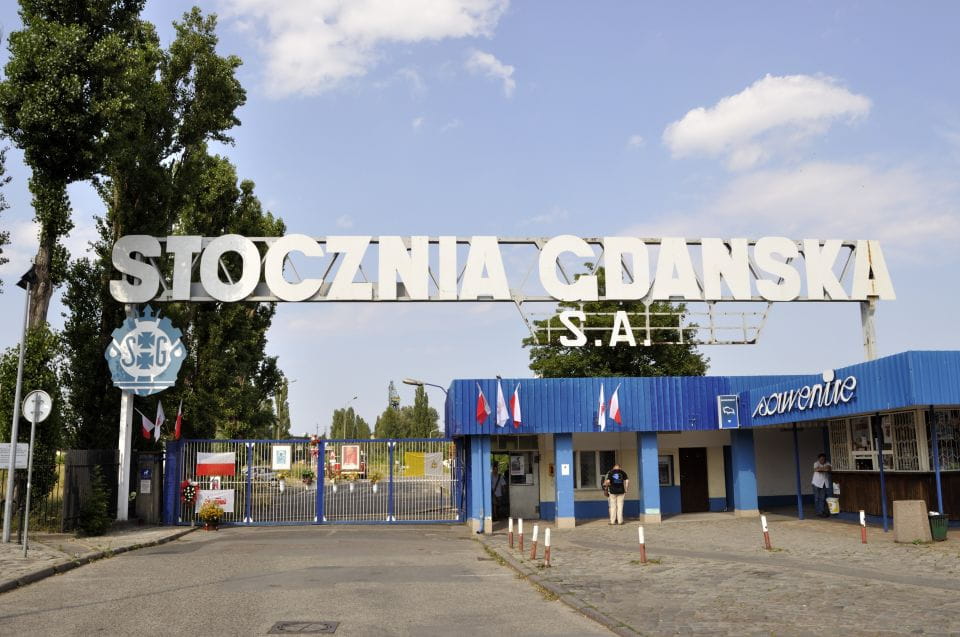
- The private Communism tour in Gdansk covers significant sites like the Gdansk Shipyard and Solidarity Square, providing insights into the Solidarity movement’s role in Poland’s democratic transition.
- The tour includes skip-the-line access to the European Solidarity Centre, allowing visitors to explore the historical context and significance of the 1980 strikes and 1989 round table talks.
- Guests will learn about key figures such as Lech Wałęsa and Anna Walentynowicz, and how the Solidarity movement inspired pro-democracy movements across the Eastern Bloc.
- The tour offers a flexible cancellation policy and pickup service within a 1.5 km radius, ensuring a seamless and convenient experience for all visitors.
- With an overall tour rating of 4.8 out of 5 from 19 reviews, the tour is highly praised for its guides’ knowledge, value for money, and the historical context provided during the experience.
Tour Overview and Pricing
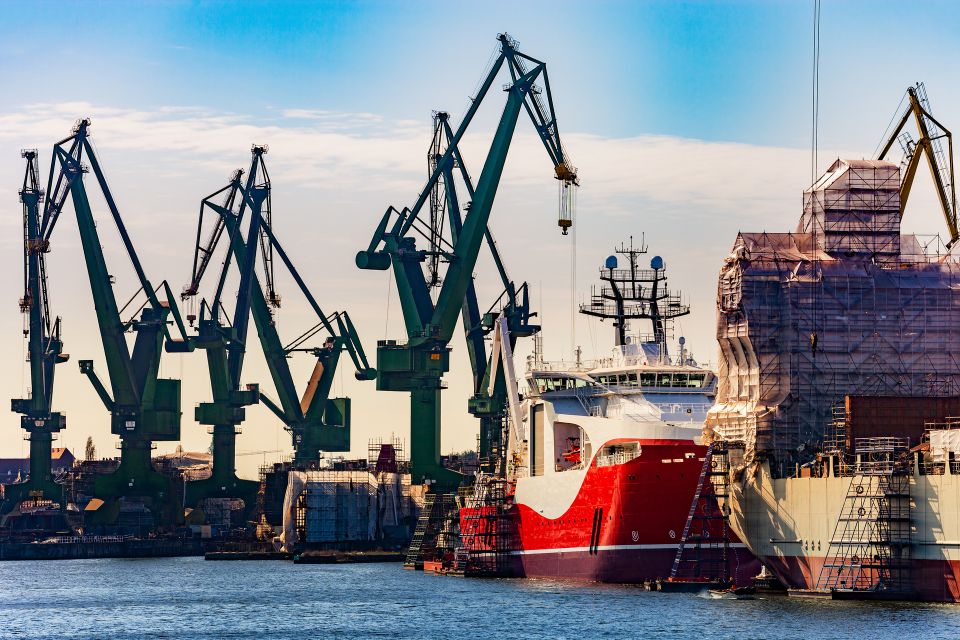
The Private Communism Tour in Gdansk offers visitors a unique opportunity to explore the city’s communist-era history, with prices starting from $132.66 per person.
The tour lasts 2-4 hours and includes skip-the-line tickets to the European Solidarity Centre. Visitors can discover the Gdansk Shipyard and monuments to the Solidarity Movement, learning about the pivotal ‘Gdansk Agreement’ signed in 1980.
The tour can be extended to 4 hours, covering Solidarity Square and the Monument to Fallen Shipyard Workers.
With free cancellation up to 24 hours in advance and no upfront payment required, this tour provides a flexible and affordable way to explore Gdansk’s communist past.
Want to keep it personal? More private experiences we love in Gdansk
Tour Highlights and Experience
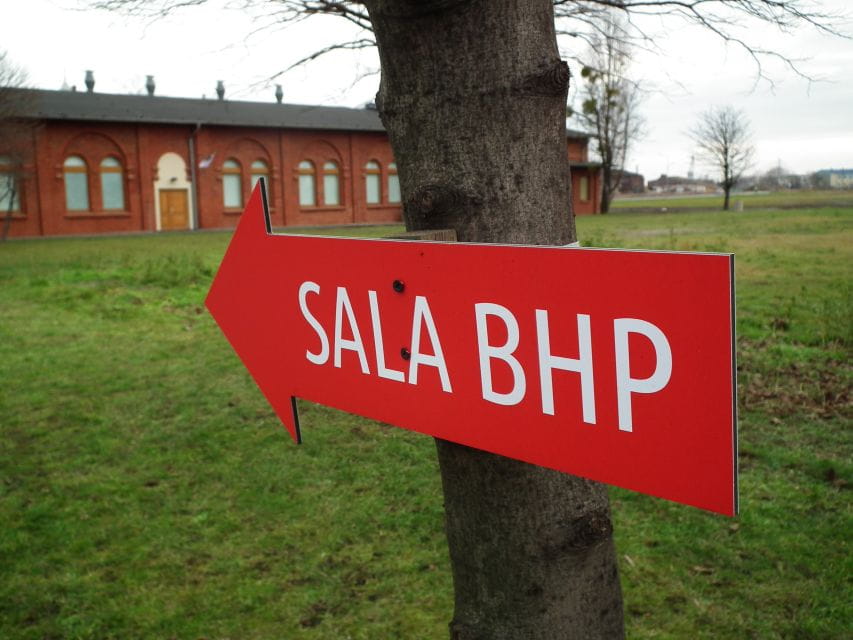
On the Private Communism Tour in Gdansk, visitors can explore the city’s communist-era history through a guided experience that includes skip-the-line access to the European Solidarity Centre.
The tour takes guests through the Gdansk Shipyard, where they’ll discover the powerful monuments and landmarks of the Solidarity movement.
Highlights include:
- Delving into the history of the ‘Gdańsk Agreement’ signed in 1980.
- Learning about the pivotal role of the Solidarity movement in Poland’s transition to democracy.
- Gaining insights into the lives and contributions of key figures like Lech Wałęsa and Anna Walentynowicz.
- Leaving with a deeper understanding of the Eastern Bloc’s path to freedom.
Historical Context and Significance
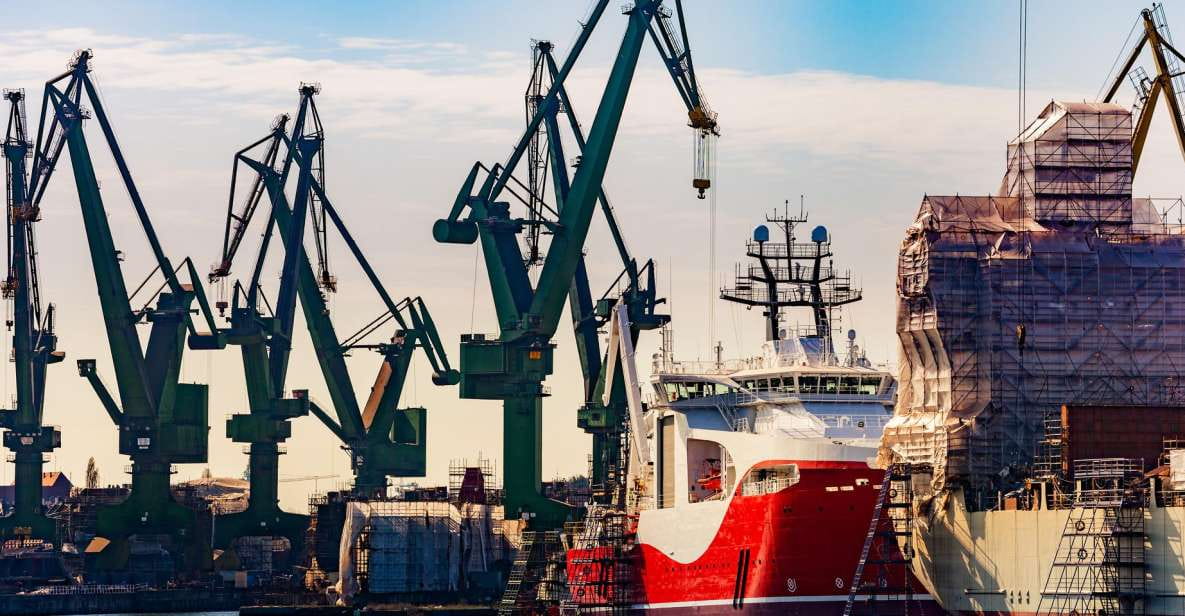
Exploring the historical context and significance of the Private Communism Tour in Gdansk reveals the pivotal role of the Solidarity movement in Poland’s transition to democracy.
The tour provides insight into the birth of democracy in the Eastern Bloc, focusing on the 1980 strikes and 1989 round table talks that led to the first pluralistic election since 1947.
Key figures like Lech Walesa and Anna Walentynowicz are discussed, underscoring the civic success of the Solidarity movement in challenging the Communist regime.
The tour offers a rundown of this transformative period, empowering visitors to better understand the historical significance of the Gdansk Shipyard and the broader impact on the Eastern Bloc.
Tour Logistics and Accessibility
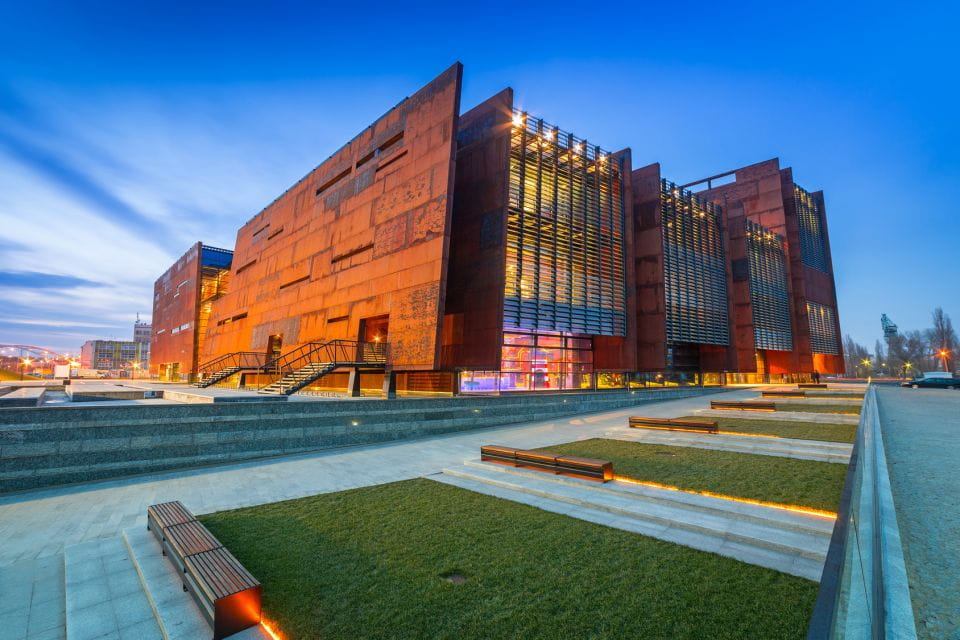
For the Private Communism Tour in Gdansk, pickup service is available in Gdansk Old Town within 1.5 km of the meeting point under the Monument to the Fallen Shipyard Workers at Plac Solidarności.
The tour is wheelchair accessible, though the Gdansk Shipyard is closed on Saturdays and Sundays.
The tour logistics provide convenience and accessibility for visitors:
- Hassle-free pickup service from central Gdansk location
- No mobility barriers for those with disabilities
- Flexibility to explore the shipyard during open hours
- Seamless experience from start to finish
This thoughtful planning ensures the Communism tour in Gdansk is inclusive and easy to navigate, allowing participants to focus on the captivating historical insights.
More Great Tours NearbyCustomer Feedback and Ratings
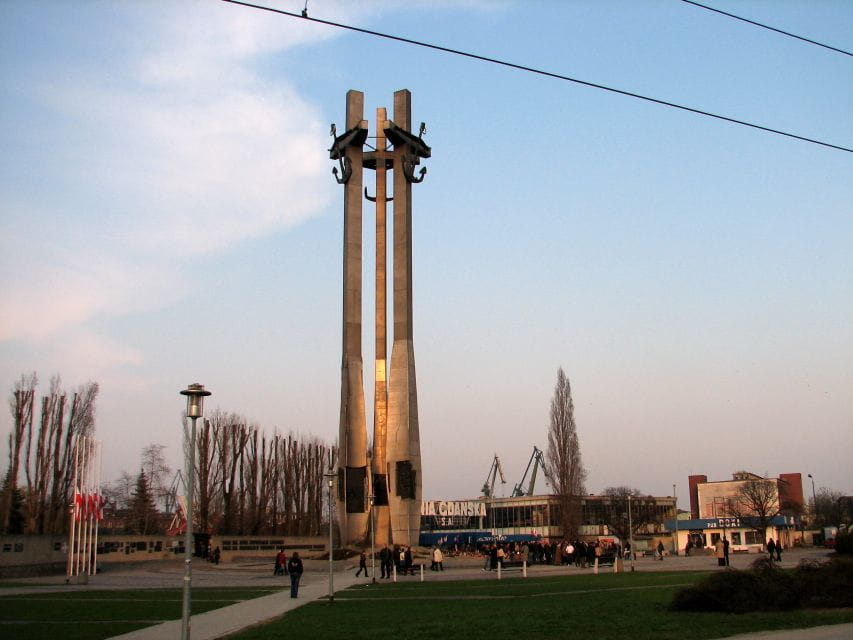
Participants have praised the Private Communism Tour in Gdansk, with an overall rating of 4.8 out of 5 based on 19 reviews.
Reviewers highlight the knowledgeable and engaging guides who provide insightful historical context about the Solidarity movement and its impact on the Eastern Bloc.
The tour’s value for money is rated 4.6 out of 5, with customers appreciating the skip-the-line access to the European Solidarity Centre.
The service and organization of the tour also receive high marks, with a 4.7 rating for both.
Ready for more culture? More museums we feature in Gdansk
- Gdansk Museum of the Second World War Private Tour & Tickets
- Gdansk: Private Communism Tour With Solidarity Center Museum
- Gdansk: Museum of World War II
- Gdansk Private Communism Tour With Solidarity Center Museum
- Stutthof Concentration Camp and Museum of WWII: Private Tour
- Gdansk Private WWII Tour With Museum of the Second World War
Key Figures and Movements
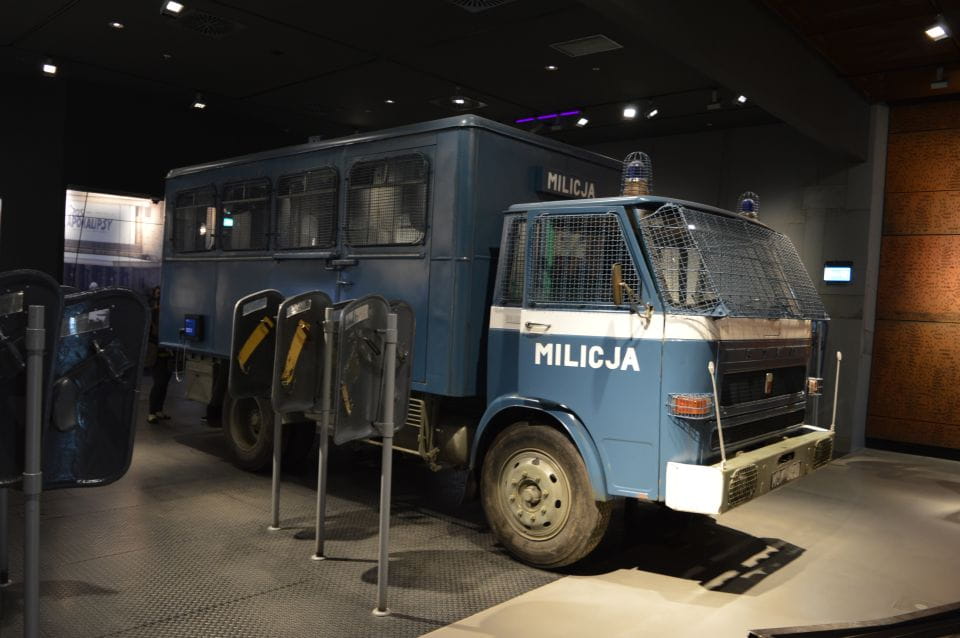
The Solidarity movement, spearheaded by figures like Lech Walesa and Anna Walentynowicz, played a pivotal role in Poland’s transition to democracy and the eventual collapse of the Eastern Bloc. These two key activists were instrumental in organizing the 1980 strikes that led to the historic ‘Gdansk Agreement’, paving the way for the rise of the independent trade union movement.
The tour provides insights into:
- The charismatic leadership of Walesa, who became the face of Solidarity and later served as Poland’s first democratically-elected president.
- The significance of Walentynowicz’s role as a shipyard worker and catalyst for the strikes.
- The broader impact of the Solidarity movement on the Eastern European political landscape.
- The round table talks and the first pluralistic elections in Poland since 1947.
Strikes and Round Table Talks
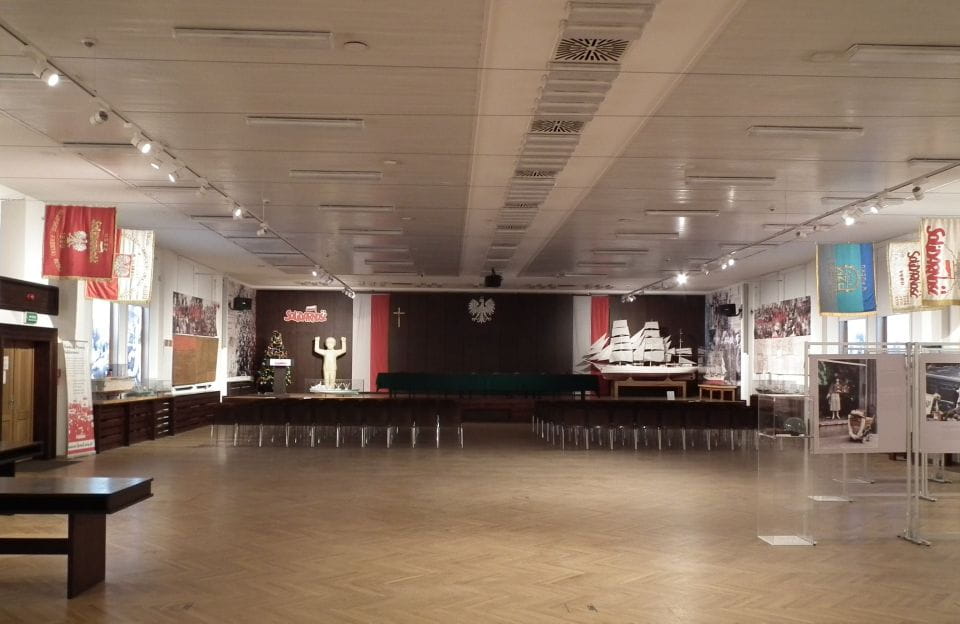
The pivotal 1980 strikes at the Gdansk Shipyard catalyzed the Solidarity movement, leading to the historic ‘Gdansk Agreement‘ that paved the way for Poland’s transition to democracy.
This landmark accord, signed on August 31, 1980, granted workers the right to form independent trade unions, ensured free speech and the press, and set the stage for the 1989 round table talks.
These negotiations between the Polish government and Solidarity representatives ultimately resulted in the first pluralistic election since 1947, marking a pivotal moment in the Eastern Bloc’s move towards democracy.
Visitors can explore this captivating history on the private Communism tour, exploring the Gdansk Shipyard and learning about the key figures who spearheaded the Solidarity movement.
Solidarity’s Impact on Eastern Bloc
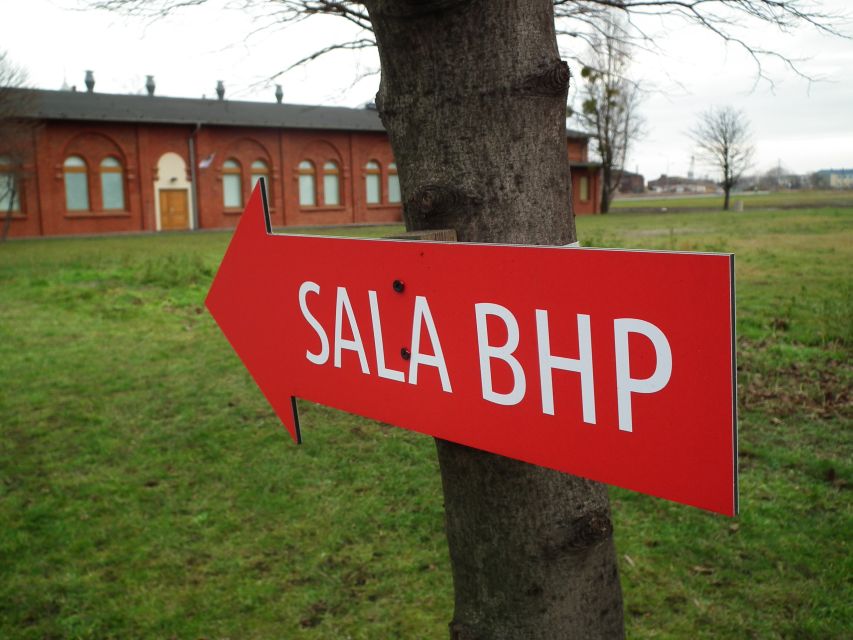
The Solidarity movement’s impact on the Eastern Bloc reverberates to this day, as it inspired similar pro-democracy movements across the region.
By challenging the Soviet-backed government in Poland, Solidarity galvanized citizens in countries like East Germany, Czechoslovakia, and Hungary to take action against authoritarian rule.
Its legacy can be seen in:
- The fall of the Berlin Wall in 1989, a pivotal moment in the collapse of communism
- The Velvet Revolution in Czechoslovakia that peacefully transitioned the country to democracy
- The mass protests in East Germany that led to the reunification with West Germany
- The growing momentum for independence movements in the Baltics and other Soviet republics
Frequently Asked Questions
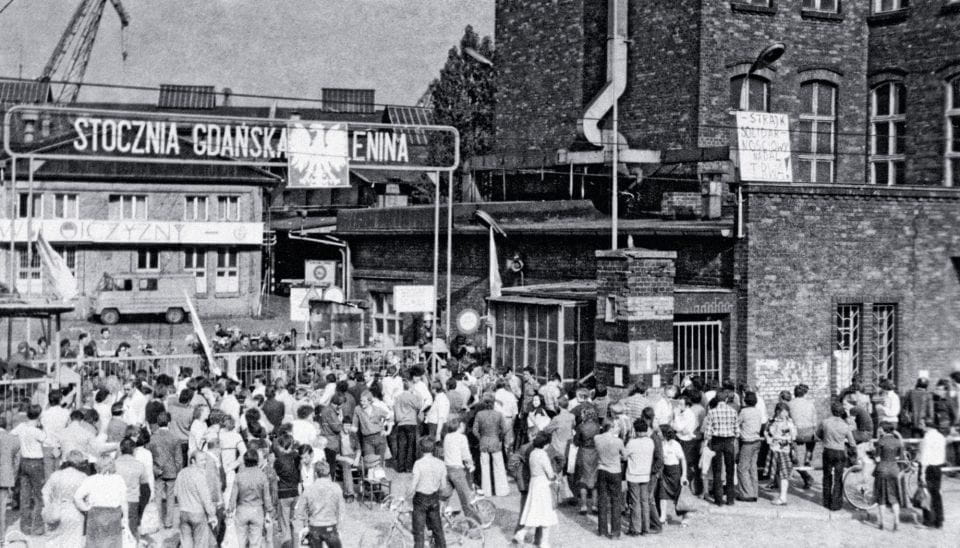
Is Food And/Or Refreshments Included in the Tour Price?
The tour price does not include any food or refreshments. Participants are responsible for their own meals and drinks during the tour, which focuses on the historical and cultural aspects of the Solidarity movement in Poland.
Can the Tour Guide Provide Recommendations for Accommodation in Gdansk?
The tour guide can likely provide recommendations for accommodation in Gdansk, as they’re familiar with the local area. However, the tour price doesn’t include lodging, so guests would need to book their own accommodations separately.
Are There Any Age Restrictions or Requirements for the Tour?
The tour has no age restrictions or requirements. It is suitable for all ages, though children may require parental supervision. The tour’s focus on history and politics may be more appealing to adult participants.
Can Photography/Videography Be Permitted During the Tour?
Photography and videography are generally permitted during the tour, though visitors should be respectful and avoid disrupting the experience for others. Tour guides may provide guidance on appropriate times and locations for capturing photos and videos.
How Accessible Is the Tour for Individuals With Mobility Challenges?
The tour is wheelchair accessible, allowing those with mobility challenges to fully participate. Pickup service from the Gdansk Old Town is available, ensuring a seamless experience for all guests, regardless of their physical abilities.
Recap
The Gdansk: Private Communism Tour with Solidarity Center Museum offers an immersive exploration of Poland’s communist past and the Solidarity movement‘s pivotal role in Eastern Europe’s transition to democracy.
Participants explore the history, key figures, and broader impact of this transformative period, providing an insightful and thought-provoking experience for those interested in understanding the region’s complex political and social dynamics.
You can check availability for your dates here:More Private Tours in Gdansk
More Tours in Gdansk
More Tour Reviews in Gdansk
Not for you? Here's more things to do in Gdansk we have recnetly reviewed
- Gdansk: 2-hour Best Intro Walking Tour with a Local
- Gdansk: Cocktail Workshop Experience
- Riverside Dumpling Workshop & Cruise Tour
- Gdansk: Vienna Opera Gala
- Gdansk: Beer Tasting Experience
- Gdansk: Small-Group Stutthof Tour
- Gdansk:Private Beer City Tour Sightseeing By Golf Cart
- Gdansk: Polish Craft Beer Tasting
- Gdask: Motlawa and Port yacht cruise with Welcome Drink
- Gdansk: City Sightseeing Tour Eco Electric Buggy Golf Cart !
- Gdask: Boat Tour on the Motawa
- Gdansk: Indoor Go-Karting
